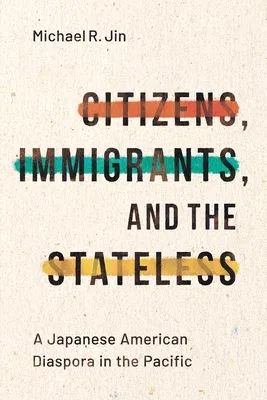Michael R Jin
(Author)Citizens, Immigrants, and the Stateless: A Japanese American Diaspora in the PacificPaperback, 16 November 2021

Qty
1
Turbo
Ships in 2 - 3 days
In Stock
Free Delivery
Cash on Delivery
15 Days
Free Returns
Secure Checkout

Part of Series
Asian America
Print Length
248 pages
Language
English
Publisher
Stanford University Press
Date Published
16 Nov 2021
ISBN-10
1503628310
ISBN-13
9781503628311
Description
Product Details
Author:
Book Format:
Paperback
Country of Origin:
US
Date Published:
16 November 2021
Dimensions:
22.61 x
14.99 x
1.78 cm
ISBN-10:
1503628310
ISBN-13:
9781503628311
Language:
English
Pages:
248
Publisher:
Series:
Weight:
385.55 gm